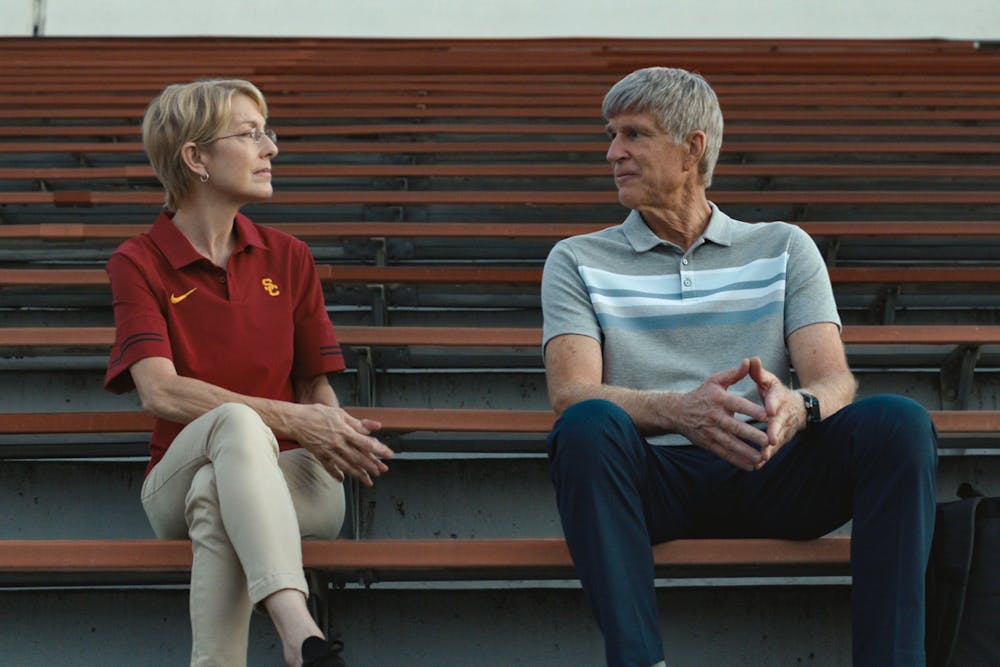"Operation Varsity Blues: The College Admissions Scandal" is a story of wealth, privilege, exploitation and bribery — and the man who facilitated the whole thing.
At first, I thought the documentary would be simple exposé on the celebrities and high-class socialites who paid their children’s way into college. But a few minutes in, I realized the scandal dove much, much deeper than that.
Behind the scenes of the felonies is a man named Rick Singer, who discovered the formula for acceptance into highly ranked universities and shared it for a steep price.
The documentary opens with high school students anxiously awaiting the status of their college applications, a harrowing scene that puts the impact of these crimes into perspective.
Singer began as a seedy independent college counselor and frequently advised students to lie about their ethnicities on their applications so they would benefit from affirmative action policies. He then began contracting himself for more high-stakes clients and shadier deals.
In wire-tapped conversations, Singer explained the paths to college admission: going through the “front door” is a student getting accepted based on merit alone; the “back door,” which does not guarantee acceptance, is through a donation upward of $10 million; finally, Singer’s “side door” promises college admission through connections, deceit and money.
I was in awe of how shameless Singer was. He was a master manipulator, using his skills to take advantage of parents' ambitious goals for their children and exploit low-profile athletic programs for personal gain.
In Singer, I saw a criminal but also an opportunist, bettering himself through any means possible regardless of the law. He had devoted his life to a high-risk, high-gain profession, and when that didn't work he moved on to the next project.
The documentary highlighted the flaws in the higher education system and its bias toward the wealthy with a slew of admissions experts describing how preference goes to students in niche activities like sailing, water polo and rowing — all expensive, and sometimes inaccessible sports.
Many students, notably social media influencer Olivia Jade, used Singer’s “side door” to attend prestigious universities by feigning involvement in these extracurriculars, in Jade's case, rowing.
Part way through, the documentary echoed back to the students anxiously checking their applications, only to find out they had been rejected. The scene brought me back to my time finishing high school — the stressful energy that filled the air when our lives were reduced to how marketable our test scores, grades and extracurriculars were.
When the news came out, I was in the thick of the college admissions process, which made the news of the scandal especially gutting.
It made me feel as if the amount of work and time students like me devoted toward ensuring a better future was immediately thrown out the window. Instead of well-deserving students getting a shot, others with no apparent ambition got accepted to the universities that some of us have devoted our entire life’s missions to.
The documentary made me face the privilege that means and status can provide head-on, and there was one line that has stuck with me since my viewing: “At what dollar value would you be willing to compromise your ethics?”
This idea pushed me to ask a question of my own — at what level of wealth does a person become disconnected from the realities around them?
At one point, one student is lamenting her rejection from her dream school.
“It’s just really shitty to feel like this,” she said. “And I know that the people that got in are super deserving.”
Immediately the scene cuts to Jade putting on false eyelashes. After this, I was awe-struck.
I could not fathom how one person could be removed and uninvolved from a process that others dedicated so much effort to. Every spot bought was stolen from a student whose family can't afford the bribes necessary for a fast pass through life.
Watching this documentary made me painfully aware of the privileges that the wealthy can afford and exactly what it can take away from other students, including myself.
The documentary surrounded Singer, a man who created a business out of fraudulent admissions. But the story was never about him, it was a deep look inside the corruption that comes with wealth.
Reach the reporter at sbalas44@asu.edu and follow @sophiabala1101 on Twitter.
Like The State Press on Facebook and follow @statepress on Twitter.
Continue supporting student journalism and donate to The State Press today.

Sophia Balasubramanian currently serves as the Diversity Officer for the State Press. She previously worked on the Echo as an editor and reporter.




